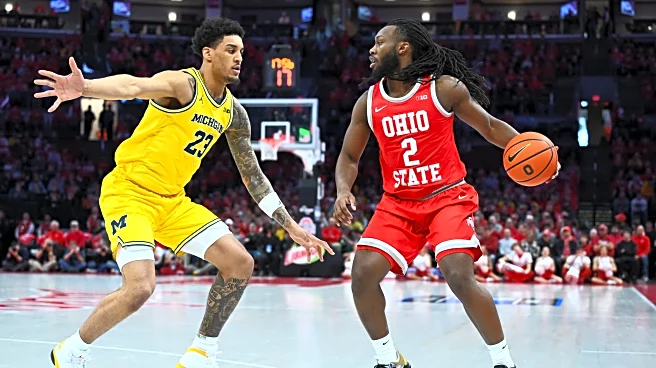What's Happening?
The Alabama Crimson Tide, ranked No. 15, is set to compete against the fifth-ranked St. John's Red Storm in a highly anticipated college basketball game. The matchup is scheduled to take place at Madison
Square Garden, with tipoff set for noon ET. St. John's enters the game as 6.5-point favorites, following a commanding 108-74 victory over Quinnipiac in their season opener. Alabama, on the other hand, secured a win against North Dakota with a score of 91-62, although they did not cover the expected spread. The game is expected to be a showcase of Alabama's high-scoring offense against St. John's robust defense.
Why It's Important?
This game is significant as it features two top-ranked teams early in the season, providing a glimpse into their potential performance in the NCAA tournament. Alabama's offense, which was the highest-scoring in the nation last year, will be tested against St. John's defensive capabilities. The outcome of this game could influence rankings and set the tone for both teams' seasons. Additionally, the betting odds and predictions from the SportsLine Projection Model, which has a track record of profitable picks, add an extra layer of interest for sports bettors and fans alike.
What's Next?
Following this matchup, both teams will continue their season with the aim of maintaining or improving their rankings. The results could impact their strategies and adjustments in upcoming games. Fans and analysts will be watching closely to see how Alabama's offense adapts against strong defenses and how St. John's manages high-pressure situations against top-tier teams. The performance of both teams in this game could also affect their seeding in the NCAA tournament.
Beyond the Headlines
The game not only highlights the competitive nature of college basketball but also underscores the importance of strategic planning and adaptability in sports. The use of advanced models for betting predictions reflects the growing intersection of technology and sports, influencing how fans engage with games. This trend may lead to more data-driven approaches in sports management and fan interaction.










